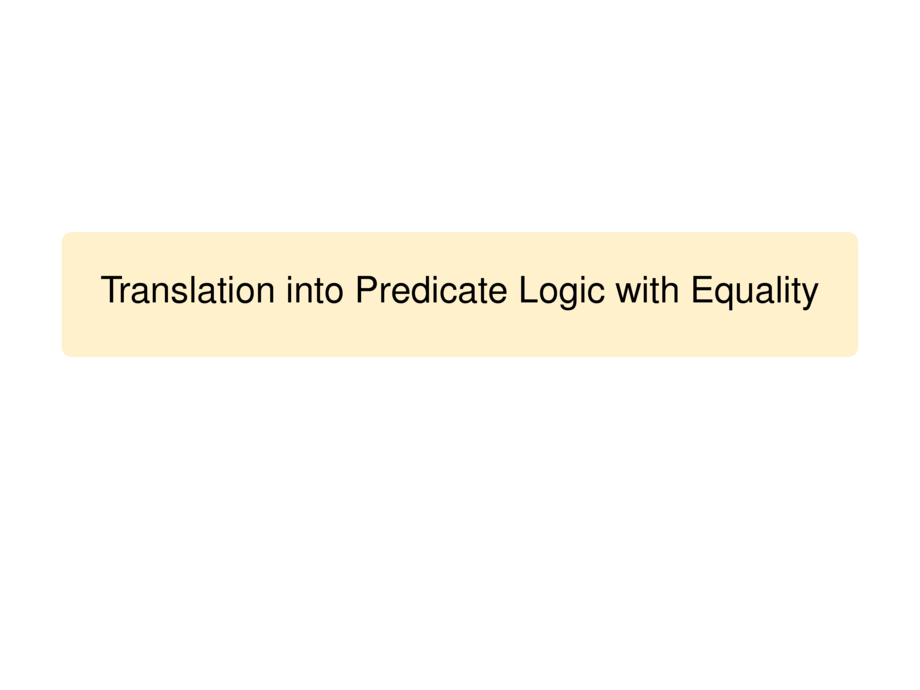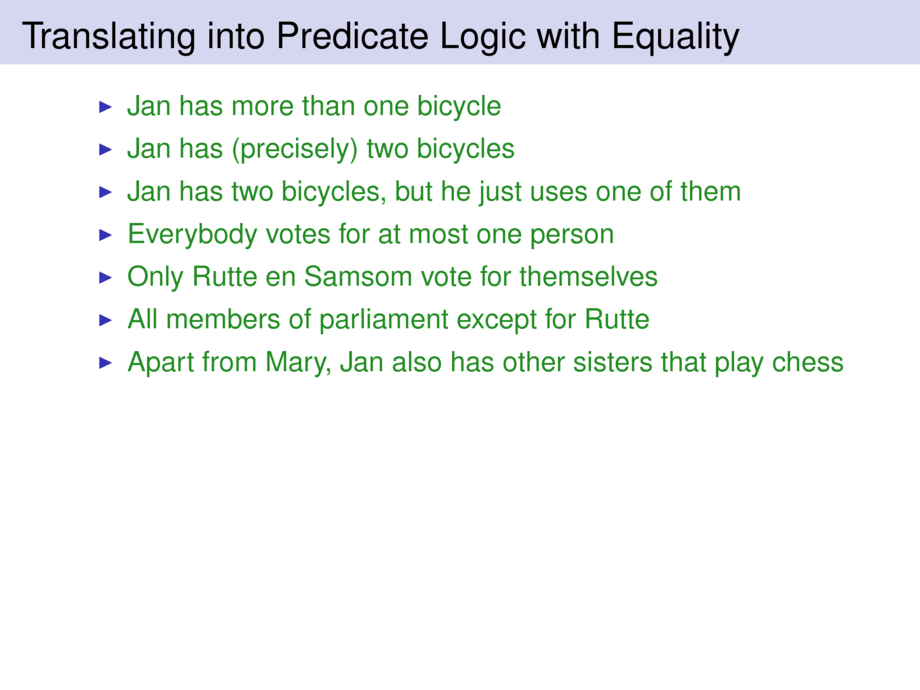



































































































113/155
\begin{frame}{Translating into Predicate Logic with Equality}
\begin{itemize}\setlength{\itemsep}{0.4ex}
\item \sentence{Jan has more than one bicycle}
\item \sentence{Jan has (precisely) two bicycles}
\item \sentence{Jan has two bicycles, but he just uses one of them}
\item \sentence{Everybody votes for at most one person}
\item \sentence{Only Rutte en Samsom vote for themselves}
\item \sentence{All members of parliament except for Rutte}
\item \sentence{Apart from Mary, Jan also has other sisters that play chess}
\end{itemize}
\pause\medskip
\begin{goal}{}
On the following slides we give the translations.
\medskip
Thereby
\begin{itemize}
\item translation key,
\item domains, and
\item interpretations
\end{itemize}
will be self-explanatory (and left implicit).
\end{goal}
\end{frame}

